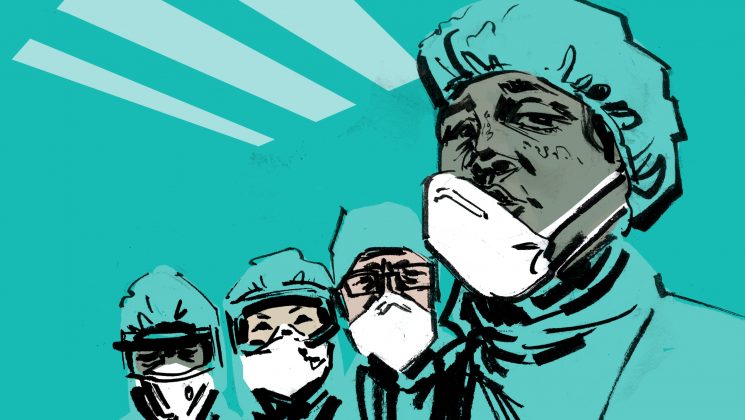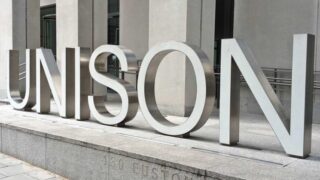When the COVID-19 pandemic broke, there was a rush to find personal protective equipment (PPE) for key workers and laptops for those working from home. But with the urgent need to stay safe, few stopped to question who was making the equipment and whether they were safe too.
What impact has this had on labour standards? And has the UK’s commitment to end modern day slavery effectively been cast aside?
A new report from UNISON, Public Procuring During COVID-19, found that, in the competitive scramble to secure fast-tracked PPE, electronics and other in-demand products, almost “no ethical considerations were made”. Instead of applying usual procurement processes and principles, goods were bought off the shelf.
As a consequence and the Cabinet Office taking control of finding some items, such as rubber gloves, decision makers overlooked or didn’t know about worker exploitation in Malaysia.
Migrant workers with work visas tied to their employer had no choice but to work in electronics and other sectors producing high-demand goods, operating at full capacity, while Malaysian citizens were legally obliged to stay at home and abide by lockdown rules.
UNISON international committee vice chair Angie Roberts said: “The public sector is the biggest single buyer in the UK. COVID-19 has shone the spotlight on just how easy it is to keep ignoring the rights of workers in global supply chains producing rubber gloves, coveralls and ventilators – even during a global crisis.
“The cost to our fellow workers’ lives is unacceptable. If we can contribute to making it harder for employers to treat workers inhumanely, then we should.”
The report draws on seven in-depth interviews and a survey among procurement and contract management specialists, to which 52 people responded. UNISON is currently building on this evidence with a survey of members working in procurement.
Over 50% of those who responded reported that COVID-19 made engaging suppliers more difficult. Examples of this included internal time pressures, the difficulty of holding hard conversations online, and travel restrictions that prevented audits from being carried out. All of these barriers led to the ethical credentials of suppliers being considered less than they should have been.
The survey also confirmed that few procurement staff use the presence or otherwise of trade unions in workplaces as a tool to understand workers’ rights in their supply chains – despite most such staff operating in workplaces that benefit from collective bargaining agreements.
UNISON international committee member Stephen Smellie explained: “This report highlights how much acting ethically matters. Procurers and contract managers need to seek information about workers in their supply chains and ensure that contract labour clauses are adhered to during the lifespan of the contract.”
Of respondents, 74% felt that the pandemic will have a long-term negative effect on procurement. While UNISON works to ease the pressures on members, the union also wants to support efforts to ensure that products used by public service workers in the UK do not jeopardise workers’ rights abroad.
This is UNISON’s second research report on purchasing and contract management. The findings of this report will be used to reinforce the development of training and branch learning resources designed for the union’s project, Purchasing Power: Putting Workers’ Rights at the Heart of Public Procurement.
UNISON’s international unit is seeking members and activists who have been taking action to improve how the public sector buys products so that the rights of workers are respected within global supply chains. If this is you, then please take part in our survey.



